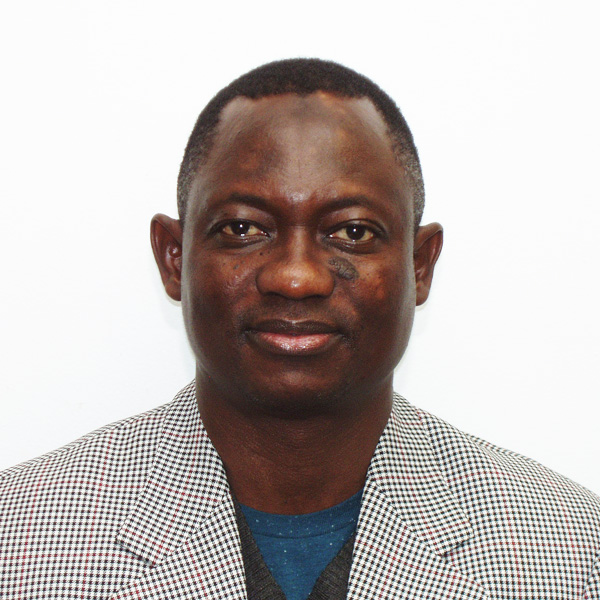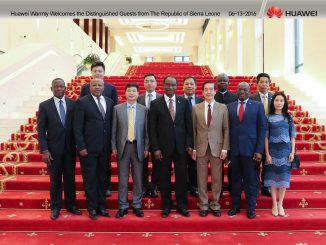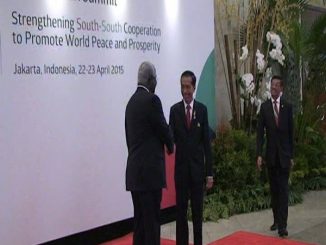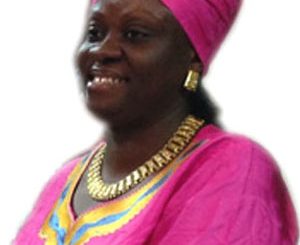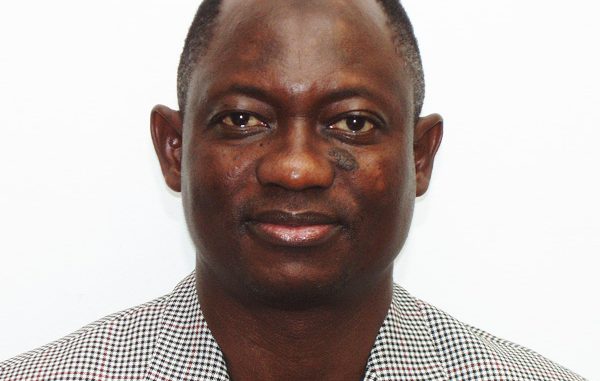
A two day retreat, 14th and 15th January, 2017 was organized in the city of Doha by the State of Qatar and it provided a forum for key stakeholders including ambassadorial-level member states, coordinators of the various coalitions and regional Member State groups, the President of the General Assembly, the two Co-Chairs, high-level officials from the United Nations and academics, to discuss in an open and frank manner pertinent issues that relate to the reform of the Security Council.
The discussions in the retreat were centered on the topic: “Revitalizing the Discussion on the Security Council Reform” which generated three central themes, viz: (1) in view of today’s challenges, why reforming the Council is more urgent than ever before; (2) an assessment of the current state of play, an evaluation of what has been achieved so far and related challenges and prospects for the future; and (3) considering the next steps and the way forward.
Sierra Leone was invited to participate in the retreat in its capacity as Chair of the African Union Committee of Ten Heads of State on the Reform of the United Nations Security Council and was represented by Ambassador Amadu Koroma, DPR 1 for Political Affairs. Apart from the office of the President of the General Assembly, thirty Member States attended which reflected a representation of all the major interest groups that are interested in the reform of the Security Council. The discussions were interactive, broadly academic and theoretical in nature and were conducted under the Chatham House rule of non-attribution.
There was an official opening segment which was opened by H.E. Sheik Mohammed bin Abdulrahman Al-Thani, Minister of Foreign Affairs of the State of Qatar. During this segment, statements were delivered by H.E. Peter Thompson, President of the 71st General Assembly Session and the two newly appointed Co-Chairs, the Permanent Representatives of Tunisia and Romania. This session was moderated by H.E. Ms. Alya Ahmed Saif Al-Thani, Permanent Representative of the State of Qatar to the United Nations.
STATEMENT DELIVERED AT THE QATAR RETREAT by H.E. MR. AMADU KOROMA , DEPUTY PERMANENT REPRESENTATIVE OF SIERRA LEONE TO THE UNITED NATIONS, NEW YORK
Mr. Chairman,
Let me start by thanking the people and the Government of the State of Qatar for the hospitality and the enormous resources that they have put at my disposal since my arrival yesterday evening in this iconic city of Doha. This unprecedented generosity will no doubt help me to participate effectively in this two-day retreat. Also, permit me to register my appreciation and commendation to the Government of Qatar for the initiative to organize this retreat that will facilitate open and frank informal discussion among Member States outside the ambit of the Inter-Governmental Negotiations at the United Nations headquarters in New York. This initiative is a clear manifestation of the strong interest and commitment of the State of Qatar to see progress in the discussion of the reform of the United Nations Security Council that has been going on for almost two and a half decades without much progress.
The topic “Revitalizing the Discussion on Security Council Reform” around which the discussions in this retreat will be focused is very timely and appropriate because there is general agreement among Member States that the momentum should be maintained and sustained in order to move the reform process forward.
The various issues that are raised in the Background Paper and Concept Note on the topic for discussion, prepared by the distinguished Professor, Dr. Luck of the University of Columbia contains many critical and thought provoking issues that go to the root of the problems and challenges that have bogged down meaningful progress in the United Nations Security Council reform. My delegation also appreciates the very stimulating academic perspectives provided in the presentations of both Professor David Bosco of Indiana University and Professor Kwesi Aning of the Kofi Annan International Peace Keeping Training Center in Accra, Ghana. It is my fervent hope that by the end of this retreat, we will be able to enrich our understanding of the various positions of the interest groups and Member States, appreciate the enormity of the challenges we face in moving forward, and proffer suitable solutions for the way forward.
Mr. Chairman,
I wish to recognize at this juncture, the presence of the President of the United Nations General Assembly, H.E. Mr. Peter Thompson and to thank him for the very incisive comments made in his keynote address. In the same vein, I appreciate the efforts made by the distinguished Ambassadors, H.E. Mr. Mohamed Khaled Khiari, Permanent Representative of Tunisia to the United Nations, and H.E. Mr. Ion Jinga, Permanent Representative of Romania to the United Nations, the two new appointees of the President of the General Assembly as Co-Chairs of the IGN process for the 71st Session of the United Nations General Assembly. It is my considered view that they have already started on a very sound footing in carrying out their onerous responsibility by engaging all the interest groups and member states even before the commencement of the IGN in this Session; with a view to identify commonalities and divergences in an open and transparent manner.
I will describe the meeting between the Co-Chairs and the African Group on the 30th of November last year, without any hesitation, as a very successful meeting.
I wish to state that the Africa Union Committee of Ten Heads of State (C-10), of which Sierra Leone is the Chair, takes very seriously the responsibility that has been bestowed on the Committee by the African Union to coordinate the negotiations and processes at the United Nations that will eventually lead to the reform of the United Nations Security Council. We the representatives of the Principals of The C-10 therefore, stand ready to work in good faith with the Co-Chairs and to fully support all their efforts to move the reform process forward. We therefore look forward to more meetings and fruitful discussions between the Co-Chairs and the African Group. We have been looking at the request of the Co-Chairs for the African Group to put on paper suggestions on how to organize discussions during the forthcoming IGN Session. Indeed, the identification of the modus operandi at this stage will make the process clearer and valuable time will not be lost in the preparations.
Mr. Chairman,
The rationale for the creation of the United Nations in 1945 was centered on the principles of providing a just, fair, equitable and democratic world order in which the interests of the people of the world and of all nations, big and small, poor and rich will be respected and protected. The Security Council was then crafted as an organ of the United Nations with broad powers to deal with international humanitarian crises and any situation that has the proclivity to threaten international peace and security. The present composition of the permanent members of this powerful and important United Nations organ reflects representation of the regions of the world but with the exception of the African region.
Today, after seventy years of the existence of the United Nations as a world organization and notwithstanding the changes in the circumstances and status of African states, the African region is still being sidelined in the United Nations Security Council. This blatant anomaly seriously questions the legitimacy of the United Nations to advocate for democracy at the national level when the institution itself continues to remain largely undemocratic by perpetuating the injustice against Africa. How can we continue to call the United Nations a “world organization” when the African Union Member States that make up over a quarter of the membership of the United Nations are being deprived continuously of becoming permanent members of the United Nations Security Council? We have continuously and persistently raised our voices and our concerns for the immediate redress of this grave historical injustice that has been meted out against the Continent but it will appear that all our demands have fallen on deaf ears.
Africa is not asking for too much, is it? We are merely asking for what we think is right, legitimate and reasonable in all the circumstances. I do not wish to repeat in this forum Africa’s demands for a reform of the United Nations Security Council, they are already well known and they have not been varied at all. The African Common Position is enunciated in the Ezulwini Consensus which was further strengthened by the Sirte Declaration and reaffirmed by subsequent African Union summit Decisions. The African Common Position remains the most viable option for a comprehensive reform of the Security Council in which there will be a just and equitable representation in the main organs of the United Nations.
Mr. Chairman,
Fifty-four sovereign and independent nations make –up the African Group at the United Nations with a population of 1.232 billion people representing about 16.36% of the total world population, thus ranking the continent as the second most populous region of the world. Most of the topical issues that feature in the agenda of the Security Council touches and concern African nations. It is therefore only proper and fair for Africa to become a permanent voice and have a say in the decisions of international peace and security that affect the people of the continent. True, Africa has contributed its fair share in maintaining global peace and security. So, in answer to the pertinent question that is posed in the Background Paper and Concept Note as to whether there is a particular urgency in reforming the Council, I say there is and the time is well over-due to do so.
Our case is strong and convincing and it has garnered wide support from various interest groups and Member States, for which we are very grateful. Africa remains open to work alongside with any other initiative that will take into account and factor our demands. We are ready to dialogue even with those interest groups and Member States that are opposed to our position. Contrary to views held in certain quarters, Africa has already shown flexibility in our Common Position and in our participation in all the IGN processes. If we take for example the question of the veto, it is the view of Africa that it should be abolished but in the event that it is the wish of Member States that it must be retained, then all new members should be allowed to exercise it with all the accompanying rights and privileges of a permanent member. This in my view is a demonstration of flexibility on the part of Africa.
Mr. Chairman,
In conclusion, Africa will like to reiterate its support for a comprehensive reform in accordance with General Assembly Decision 62/557 and its rejection of a piecemeal approach that undermines and contradicts the African Common Position. We also think it will be better if there is a general agreement first on the procedural matters such as the principles and criteria of the negotiations before moving on to the stage of an agreement on substance as this will help to narrow down on the areas of divergence as well as consensus building.

